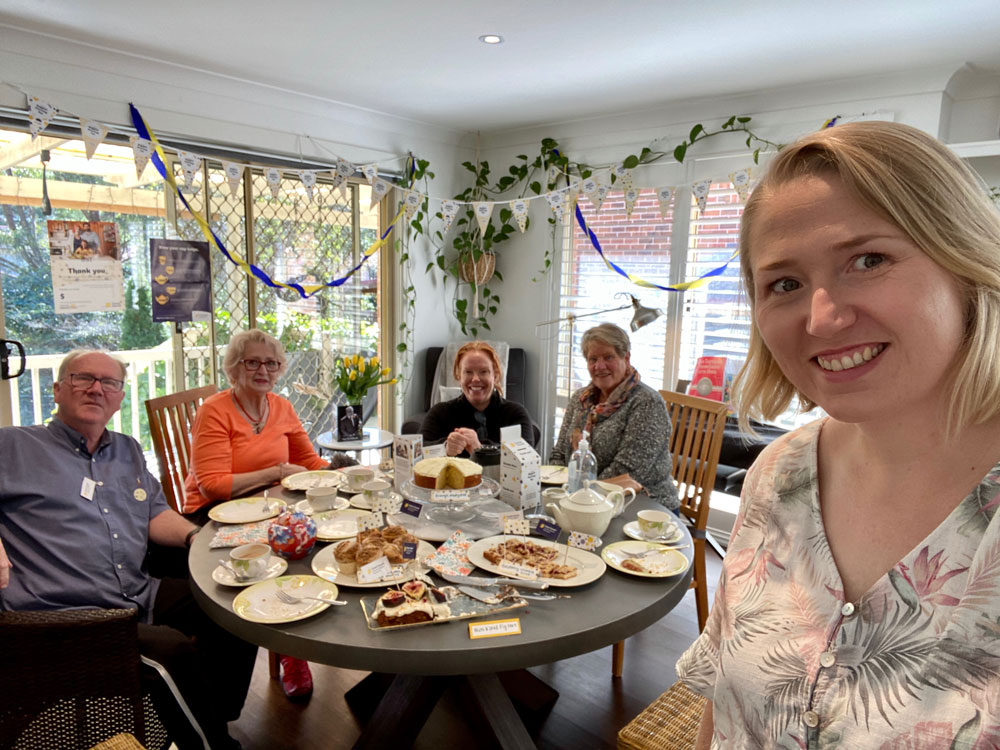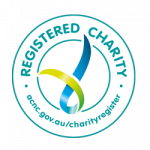One year ago, I was diagnosed with aggressive adenocarcinoma cervical cancer and it changed my life. I needed an urgent radical hysterectomy surgery and had several complications post-op, requiring six hospital admissions over several months.
Just as we had started to hear about the new Coronavirus, on the 10th of March 2020, I went to my gynaecologist for a colposcopy following a Cervical Screening test result at my GP which was positive for HPV18. Apparently, this is a new screening measure introduced by the Australian Government in 2017. The previous Pap test used to look for changes in the cells of the cervix, the entrance to the uterus (womb) from the vagina. Now the cervical screening test looks for evidence of the human papillomavirus (HPV), which can lead to cell changes in the cervix. This critical change in screening saved my life.
According to https://www.healthdirect.gov.au/cervical-screening-test, “HPV is a very common virus that is spread through skin-to-skin contact (which often occurs during sex). Almost every case of cervical cancer is caused by genital HPV.
You can be exposed to HPV the first time you have sex, even if you use a condom. In fact, there are more than 100 strains of HPV, and 4 out of 5 people have at least one kind of HPV virus at some time in their lives. There is no treatment for HPV.”
During the colposcopy, my gynaecologist found a tiny spot, just 3mm which she removed for biopsy, commenting that it was most likely “nothing to worry about but we should be sure”. A week later she gave me the news that the biopsy result was precancerous and that she would like to do a further, more invasive cone biopsy under anaesthetic to take a larger section of the cervix for pathology. This surgery was scheduled for March 21st, 2020.
By this time, a global pandemic had been declared and Sydney was in full lock down. I arrived for my procedure at North Shore Private hospital in a face mask and had my temperature checked (novel at this time) and was not allowed to have anyone to wait with me. Everyone in the hospital was nervous. I was anxious. It was an unusual time. The procedure took longer than it should have, and I had unexpected bleeding and needed to stay overnight. On discharge I saw my doctor and she said, “I’ll see you in two weeks for your follow up appointment with the pathology results unless you hear from me in the meantime”.
Unfortunately, I heard from her. On April 1st, she rang me and, as I held my husband’s hand, told me what no one ever wants to hear, “You have cancer”. She explained that she had made an appointment for me with an Oncological Gynaecological Specialist at Royal North Shore for the following Monday morning and that he would most likely be recommending a hysterectomy. I had only recently celebrated my 40th birthday.
I was shattered. We know the statistics: one in every two people get cancer in their lifetime. Even so, you do not think it will happen to you. I cried, I went numb, I felt sick, I was angry, I was scared. My mind went blank then flashed with horror scenarios and a million questions. My main thought then, and remains now, “I’m too young for menopause!”
My husband and I went to RNS for the appointment on Monday morning apprehensive, subdued and prepared. I was actually expecting to be admitted for surgery that day! I found out it doesn’t work like that. The specialist explained that because I had recently had a cone biopsy I would need to wait until that had healed until he could do the surgery. There were also further tests that I need in the meantime, CT and PET scans, that would assist him during the surgery. He proposed a date in mid-May. I asked about whether COVID, as it was now called, would impact the surgery and he said that mine was a category 1 surgery and would proceed “no matter what”. They weren’t mucking around.
We discussed my concerns about menopause, and he agreed that I could possibly keep my ovaries, pending the test results. I felt quite happy about this, it seemed like at least a silver lining. I left the appointment feeling a bit hopeful.
The next few weeks were a rollercoaster ride of emotions. Some days I felt positive and confident about the surgery. Other days I was flat and sad. Sometimes I was totally convinced I was going to die. I had set up a Facebook group called “My Tribe” of my closest friends and family and was consistently posting about my thoughts and feelings during this time. Of course, it was still during lock down so I could not really see anyone, so this was exceedingly difficult. My Tribe have been an amazing source of support. They made and brought us food, gave me care packages, sent encouragement messages, flowers, gifts, looked after our daughter during appointments. I am blessed with great people in my life.
On the 1st May I had my PET scan and saw the surgeon shortly afterwards. The news wasn’t great. The scan showed that there was potential activity on one of my ovaries and lymph nodes. He strongly recommended a radical hysterectomy. I was devastated. Any hope I had of avoiding menopause was gone. This was now the real deal. I asked again and again if it was necessary. Couldn’t I keep the one ovary that was ok? Couldn’t we redo the PET scan? I considered getting a second opinion. There was no time. And no point: the severity of my case, being an aggressive adenocarcinoma, had warranted referral to a board of specialists at RNS for discussion. They all agreed on this surgery, and the sooner the better. It was scheduled for May 19th.
Anyone who has had major surgery can relate to the nerves I felt leading up to it. The preadmission appointment took 5 hours! I had discovered a fantastic meditation app by this time and was using it for several hours per day. It was invaluable in helping me through this period both pre- and post-surgery.
The surgery went ahead as scheduled and was by all accounts uncomplicated. I stayed in RNS for 5 days and came home relatively pain free considering the procedure I’d just had. Unfortunately, within a couple of days I became unwell and the surgical wound began to seep. My husband took me to Northern Beaches Hospital ED and they did an ultrasound of the surgical scar and found an abscess which needed to be drained. Pathology showed that it was infected. I was placed on two types of antibiotics and discharged.
Over the next couple of weeks, I finished the antibiotics, and was starting to feel a little better. The wound had healed and looked okay. Suddenly, one evening I started vomiting and had a terrible fever and the wound looked red and was terribly hot and sore. We went back to the Northern Beaches Hospital ED. The wound was infected again but much worse this time and I was admitted to hospital and put on IV antibiotics. I stayed in for four or five days.
This continued for several months until the infection finally cleared up – I was repeatedly getting an infection, presenting at hospital ED and being put on stronger and stronger IV antibiotics. Eventually I developed a secondary bowel infection, c. difficile colitis, which became septic. I was very unwell. Many times I had to stay in hospital several days without visitors due to the COVID restrictions. Sometimes I thought I would go mad. It was especially hard for our 8-year-old daughter who spent many weeks without seeing me.
In desperation, I called the Centre for Digestive Diseases and asked them for help. I was placed on their clinical trial for the Faecal Microbiota Transplant Capsule. It felt like a last hope. In August 2020 I commenced the trial, which was six days of FMT capsules, three times per day and within one month I had no further symptoms of any infection. It took me until September to be able to drive the car, do the shopping independently, cook a meal or do the washing. Four months after my surgery. And I still needed at least a two hour sleep every afternoon because I was completely exhausted. It wasn’t until November that I finally felt “normal” again. And then I could start dealing with the menopause symptoms (which are every bit as bad as I thought they would be!).
It has been a long road to recovery, and I am not there yet. I have my one-year scan next week. Fingers crossed that everything is clear. As I negotiate the path of early menopause and all the *fun* that brings, despite everything I am feeling incredibly lucky. I am lucky that the cancer was found at the time it was (it was an early-stage cancer) and could be removed surgically. I am incredibly grateful for our fantastic public health system, the doctors, nurses, pathologists and allied health professionals have been brilliant.
My final thoughts: please have your Cervical Screening Tests and get your kids vaccinated for HPV. The cancer I had is almost entirely preventable. I missed out on the vaccination because it only started just a couple of years after I left school.




